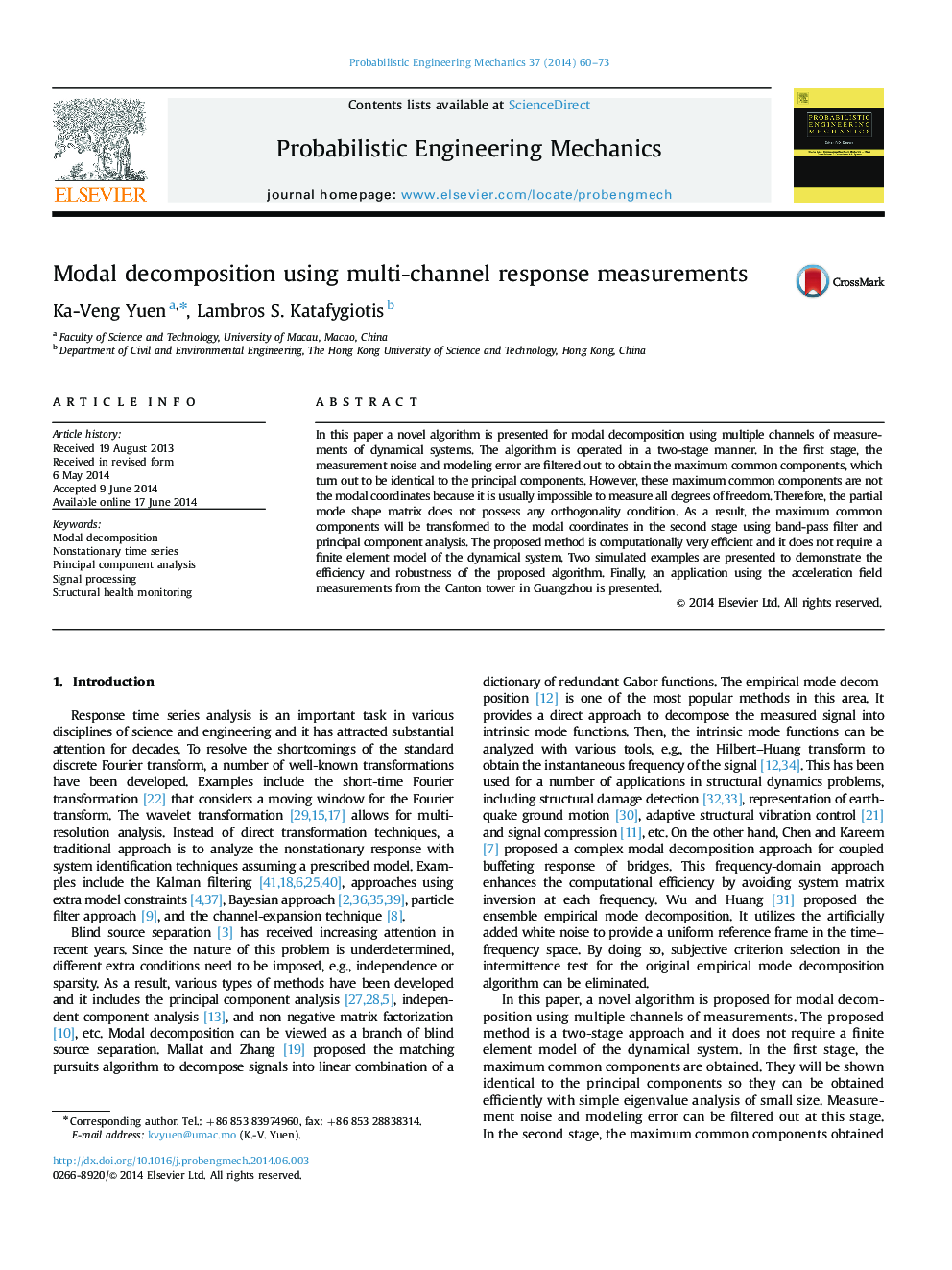| Article ID | Journal | Published Year | Pages | File Type |
|---|---|---|---|---|
| 802155 | Probabilistic Engineering Mechanics | 2014 | 14 Pages |
•The proposed method is efficient and robust for modal decomposition using multiple-channel of measurement.•The proposed method does not require a finite element model of the system.•It is applicable to both stationary and nonstationary response measurements.•Simulated and field measurements are utilized to demonstrate the proposed method.
In this paper a novel algorithm is presented for modal decomposition using multiple channels of measurements of dynamical systems. The algorithm is operated in a two-stage manner. In the first stage, the measurement noise and modeling error are filtered out to obtain the maximum common components, which turn out to be identical to the principal components. However, these maximum common components are not the modal coordinates because it is usually impossible to measure all degrees of freedom. Therefore, the partial mode shape matrix does not possess any orthogonality condition. As a result, the maximum common components will be transformed to the modal coordinates in the second stage using band-pass filter and principal component analysis. The proposed method is computationally very efficient and it does not require a finite element model of the dynamical system. Two simulated examples are presented to demonstrate the efficiency and robustness of the proposed algorithm. Finally, an application using the acceleration field measurements from the Canton tower in Guangzhou is presented.
